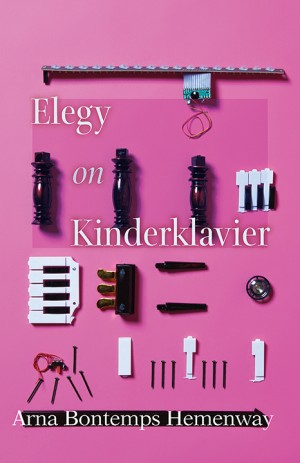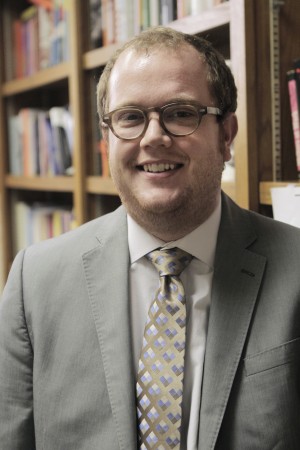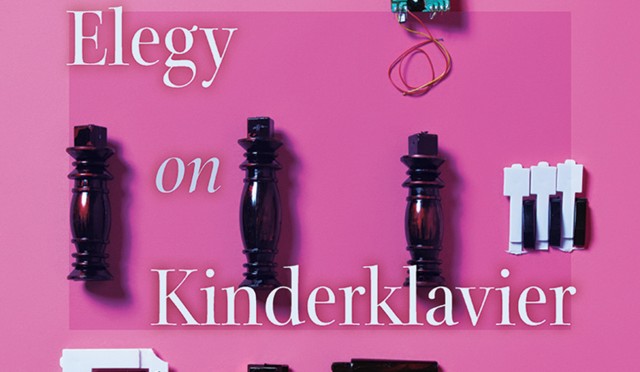
By Taylor Rexrode
A&E Editor
Arna B. Hemenway, assistant professor of English, joined the Baylor faculty last fall as a creative writing professor. His collection of short stories called “Elegy on Kinderklavier,” will be on sale at bookstores starting July 15.
The Lariat sat down with Hemenway and discussed his journey to getting the collection published, and he offered advice for aspiring writers based on his own experiences.
Q: Tell me a little bit about the process of writing this book.
A: It’s a collection of short stories and a novella that span pretty widely in their subject matter.
A good portion of the stories are about the Iraq War, which includes veterans and soldiers on active duty as well as a couple bits about back home as well as Kurdish locals in the north.
The novella is about a young boy in a pediatric oncology ward with a terminal brain tumor.
I write mostly research-based fiction. Basically, I’m interested in writing fiction that’s closely tied to people’s real experience.
A lot of the book grew out of my research into the Iraq War and the various experiences of people.
The novella came from my research into families that I knew or that I knew of who had children who died of this particularly nasty kind of brain tumor called Diffuse Intrinsic Pontine Glioma.
For me, a lot of the reason I write fiction is because I write about the stuff that doesn’t let me alone, the stuff that kind of haunts me, or the stuff that I’m troubled by.
I think that some people, depending on their talent, answer that differently in the world.
What I feel like that I can do is write about it in fiction and use things like empathy or imagination to try and sort of examine and interrogate certain types of experience.

Q: How long has this book been in the making?
A: A long time. Some of this book I wrote in graduate school or just after. It’s kind of interesting.
The whole time I was working on these stories, I never really thought of publishing a short story collection.
My intention was always to publish a debut novel, and it was supposed to be my thesis at Iowa. But I managed to completely fail.
The novel manuscript I wrote was horribly wrong and wasn’t any good. I thought, “What do I have to show from all this work?” and it was these stories.
Q: Was it difficult to actually get this collection published?
A: Publishing is a strange thing. I would not say it wasn’t difficult. I would say, like anyone who gets published, a good amount of luck was involved.
It’s sort of funny how you look at things afterward. I spent four or five years working on this thesis novel that I always thought was going to be my path to glory and fame and riches.
I thought Oprah was going to choose it. I had these ridiculous, arrogant ideas, and I ended up failing that novel. If I hadn’t done all that, I don’t think I could have written these stories that are now the book.
Q: What advice would you give to a young, aspiring writer?
A: Run. Hide. Do anything else. (laughs) No, I only mean those half-seriously.
If I had to choose the most important thing, I would say that the most importance experience in creative writing is just the experience of writing well. Once you really try and focus on that experience, not only do you write better, but you end up happier, I think.
It’s really difficult. It’s one of the things about creative writing that‘s the toughest, that the most valuable experience of it is also the most difficult one to have.
The other thing I would say is worry about having a life more than having a career. Seek out the widest possible variety of life. That will help your writing more than anything.
Craft and stuff like that, you can learn, but heart and meaning and explorative, inquisitive, curious soul, that’s something you have to go out and make for yourself in the world. And nobody tells you to do that.
Q: Are there plans for a new book? Can you share anything about it?
A: I am working on a couple novel projects. One lesson I learned from the failure of my first attempt was to always work on multiple things so you don’t just invest in one project that may or may not succeed.
We’ll see what it comes to, but I’m enjoying working on it.



